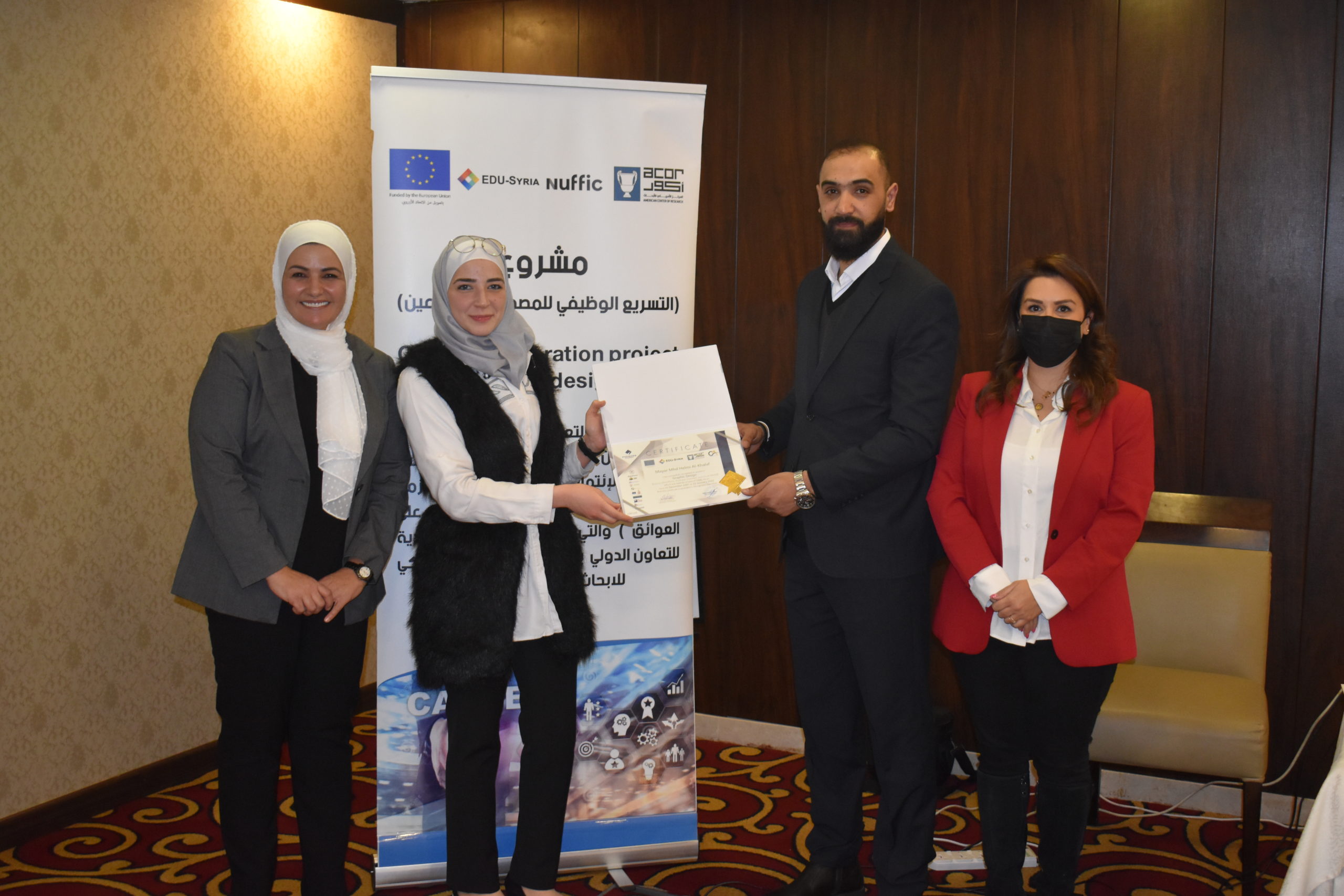COVID-19 has reshaped our vision of the world. It has not only forced us to pivot our lifestyle, but it has also accelerated existing trends in remote working, widening the possibilities for employment opportunities. With national institutions and corporations directing more of their work and services online, and with capacity-building efforts that help young graduates and local community members to achieve better employment being within the scope of the American Center of Research’s work, this project was developed to equip Syrian refugees and underprivileged Jordanians with the tools and skills they need to pursue economic opportunities that are not limited by geographic location.
The Career Acceleration Project for Creative Designers, supported and funded by the European Union, EDU-Syria, and Nuffic, was implemented by the American Center of Research starting in 2021 to widen the beneficiaries’ perspectives on the new digital economy and their ability to reach online opportunities at national and global levels. Through the four phases of the project, participants built their capacities in soft and technical skills, learned how promote their creative work professionally, and received access to an engaging and inspiring environment to help jump-start and advance their careers.
The project consisted of four stages:
 | The first phase started with a committee’s selection, from among the applicants, of 100 individuals who would receive an analysis of their application and portfolio. From among these 100 individuals, 40 were chosen for the next phase. |
 | The second phase provided career coaching and training in communication and other soft skills. The trainers assessed the 40 participants in this phase to select 17 participants who would receive additional training. |
 | The third phase of the project provided these 17 participants with technical training in visualization and design programs (animation and architectural visualization programs, Adobe applications, etc.), English-language skills, and project-management and entrepreneurship skills. |
 | The fourth and final phase of the project allowed participants to serve as interns at organizations and to benefit from additional perspectives on how to use their skills in new and in-demand fields, such as ecotourism, development of digital educational tools, and interpretation and visualization for heritage sites. |
Organizations that offered internships to participants in the fourth phase:
Al-Fanar Printing Press
American Center of Research (USAID SCHEP)
Collateral Repair Project
Department of Antiquities of Jordan
E3lanation
Galaxy Organization
ICOMOS Jordan
National Aid Fun
Petra National Trust
Pioneers Academy
The National Center for Culture and Arts
Wajih Samara Engineering Office
Zakat Fund
